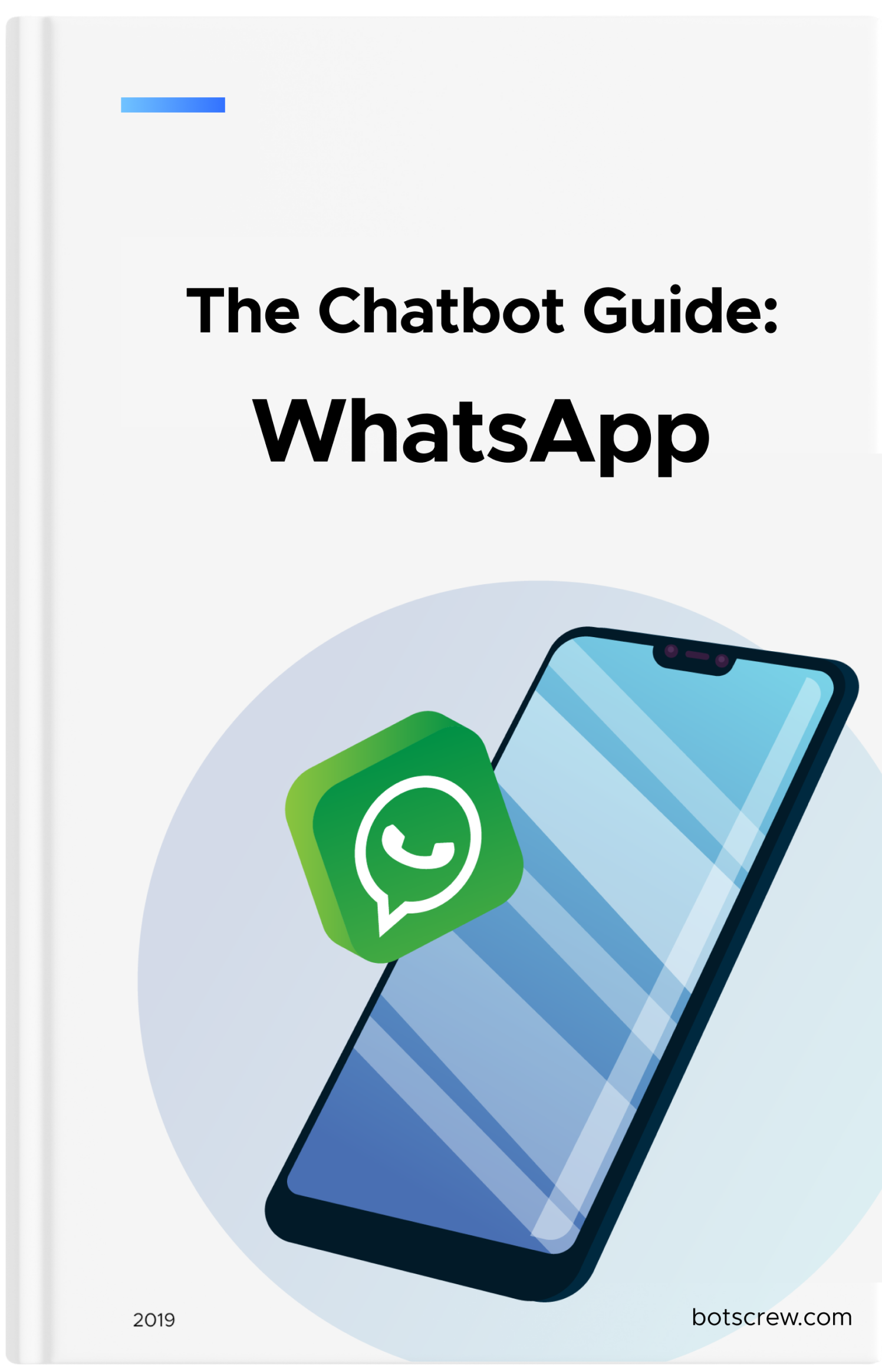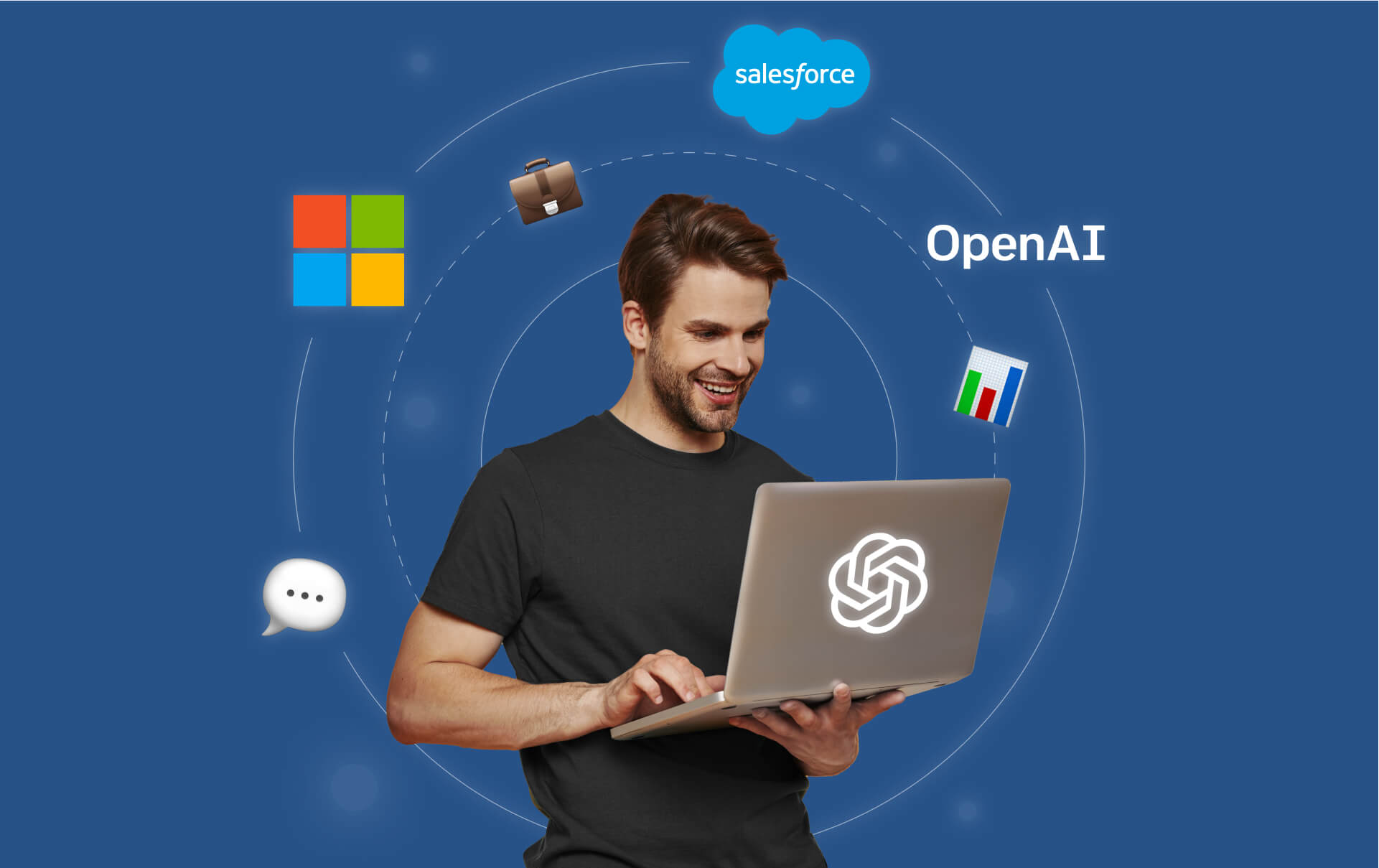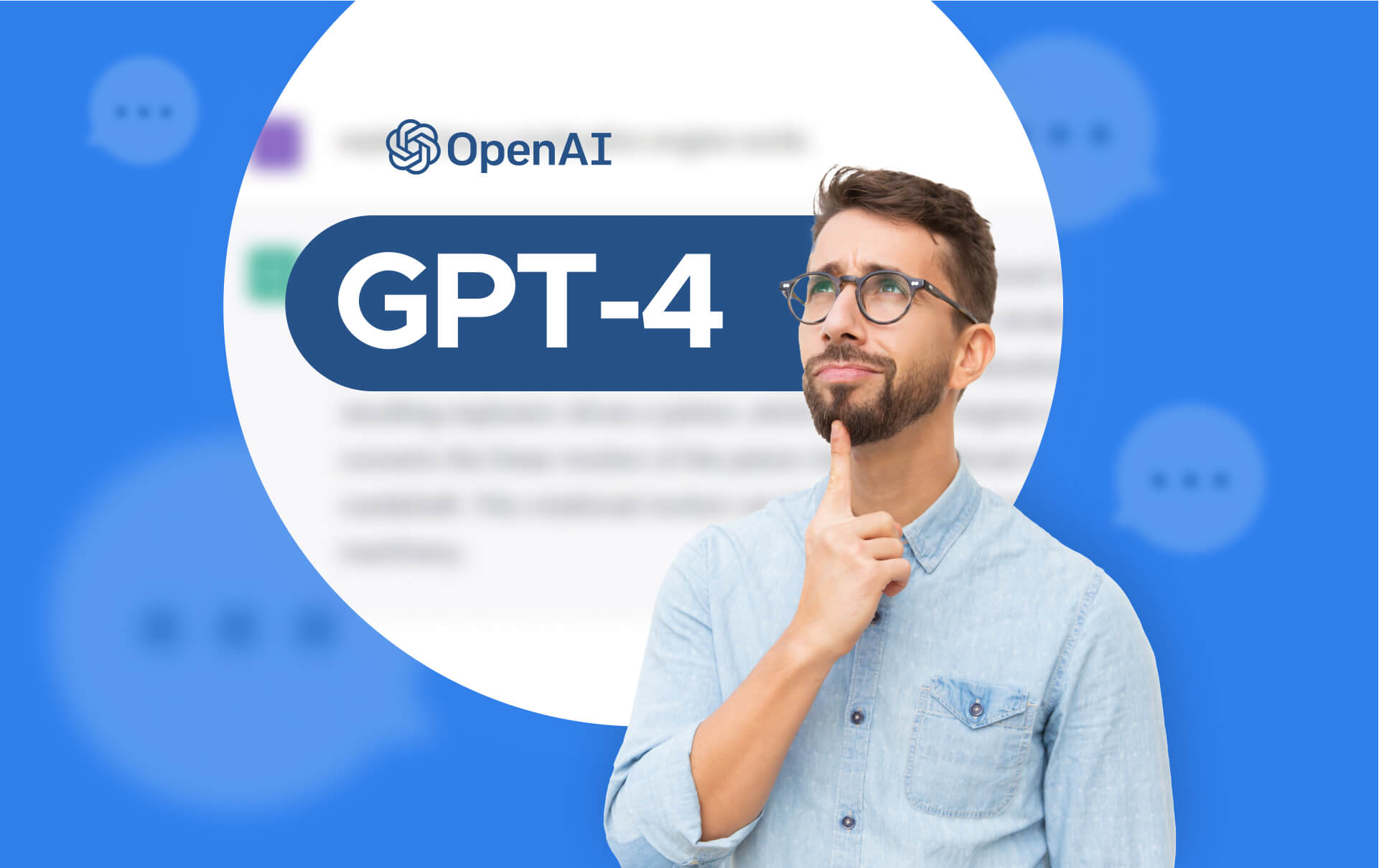ChatGPT FAQs: Demystifying ChatGPT for Commercial Use
With ChatGPT, employees can save hours of work. Yet, is it safe enough to share corporate data? Learn from applications of ChatGPT for enterprise.
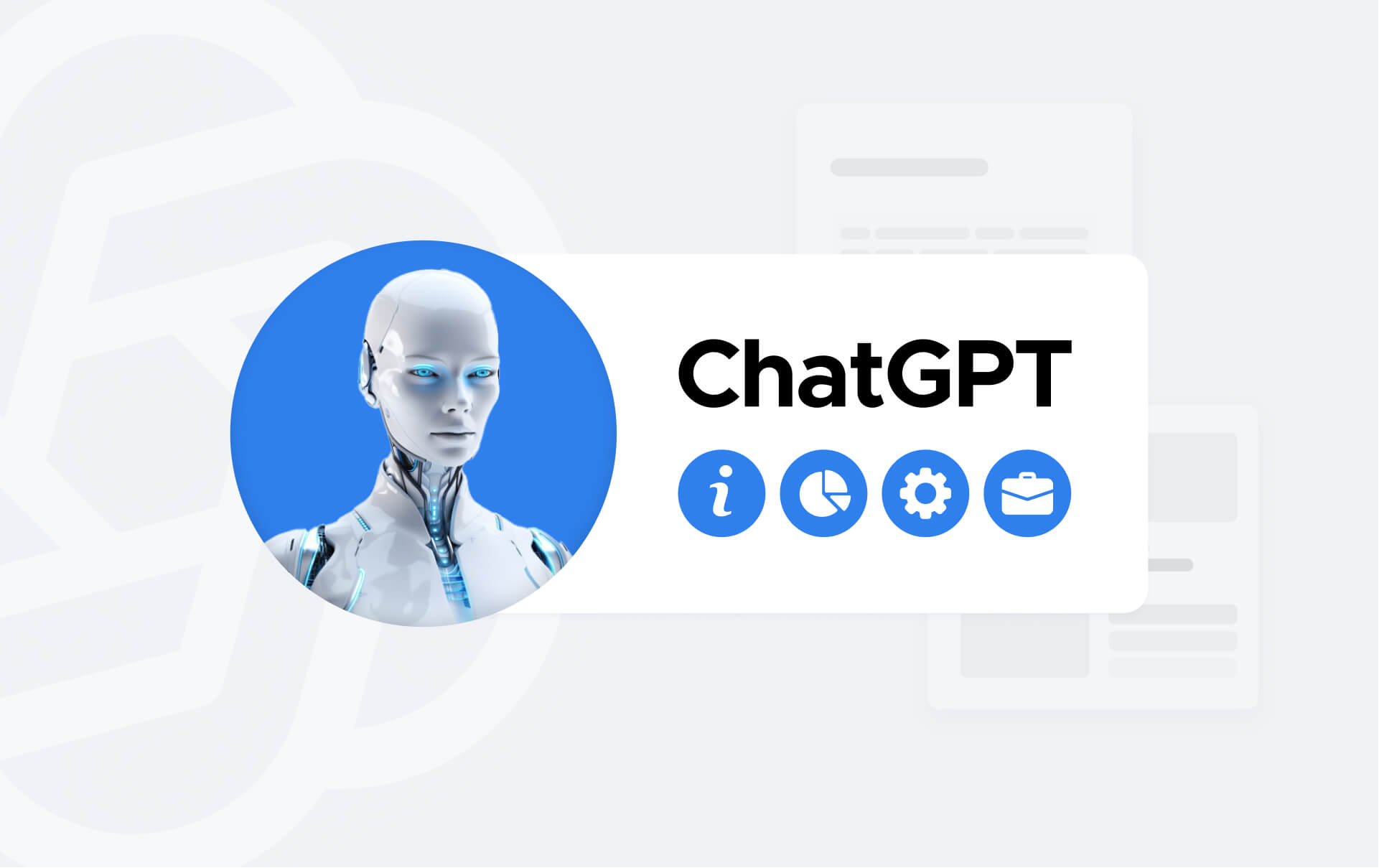
With the emergence of ChatGPT for enterprise, this groundbreaking tool has claimed the potential to revolutionize various business industries. As many companies are on the way to implementing generative AI into processes and excelling ChatGPT for commercial use, it’s a matter of time before the hype goes off.
Missed the hyping ChatGPT train? Not sure what everyone is talking about, as you were not impressed with its performance?
Don't worry: you're not the only one. The skepticism and mistrust to ChatGPT's security, performance, and returns are common among business people. It's nothing like we've seen before, is it?
On our Generation AI Community, we asked business owners, entrepreneurs, and professionals who were curious about integrating ChatGPT into their operations one question –
What bothers you the most about ChatGPT when it comes to commercial use?
Their questions were as diverse as the industries they represented, from marketing and customer service to content creation.
As a result, this post emerged to gather everything non-tech people you need to know – so far – about ChatGPT, along with many confusing myths.
Whether you're a seasoned gen AI entrepreneur or just starting your journey, we hope this guide will equip you with the knowledge you need to make informed decisions about incorporating ChatGPT into your commercial endeavors.
To match any audience knowledge level, this post breaks down into two parts:
→ Part 1: ChatGPT FAQs: Basic Concepts & Simple Explanation
Covers everything you need to know about ChatGPT. It’s a brief cheat sheet with key concepts to fill in any knowledge gaps about this emerging technology.
Feel free to skip it if you're already aware of these and look for more practical advice.
→ Part 2: ChatGPT for Commercial Use: Advice & Predictions from Experts
A collection of advice from AI practitioners who found their way to use ChatGPT effectively. Likewise, they come from different fields of expertise – artificial intelligence, customer service, marketing, or sales. With their deep knowledge and experience, they shared their insights, predictions, and guidance.
So take your seat: we’re about to set off to the world of ChatGPT for work professionals!
ChatGPT FAQs: Basic Concepts & Simple Explanation
What is ChatGPT?
ChatGPT is an AI model designed for natural language conversation by Open AI and released to the public in November 2022. It's like a virtual chatbot that can understand and generate human-like text responses. To access it, visit the website, register a free account, and chat with it immediately. ChatGPT comes in free and paid options. There are additional features like the use of improved versions and ChatGPT plugins.
What can ChatGPT do?
ChatGPT can perform various tasks, such as answering questions, writing content, providing recommendations, generating code, translating languages, and more. For instance, you can use it to draft emails, create product descriptions, or even brainstorm ideas.
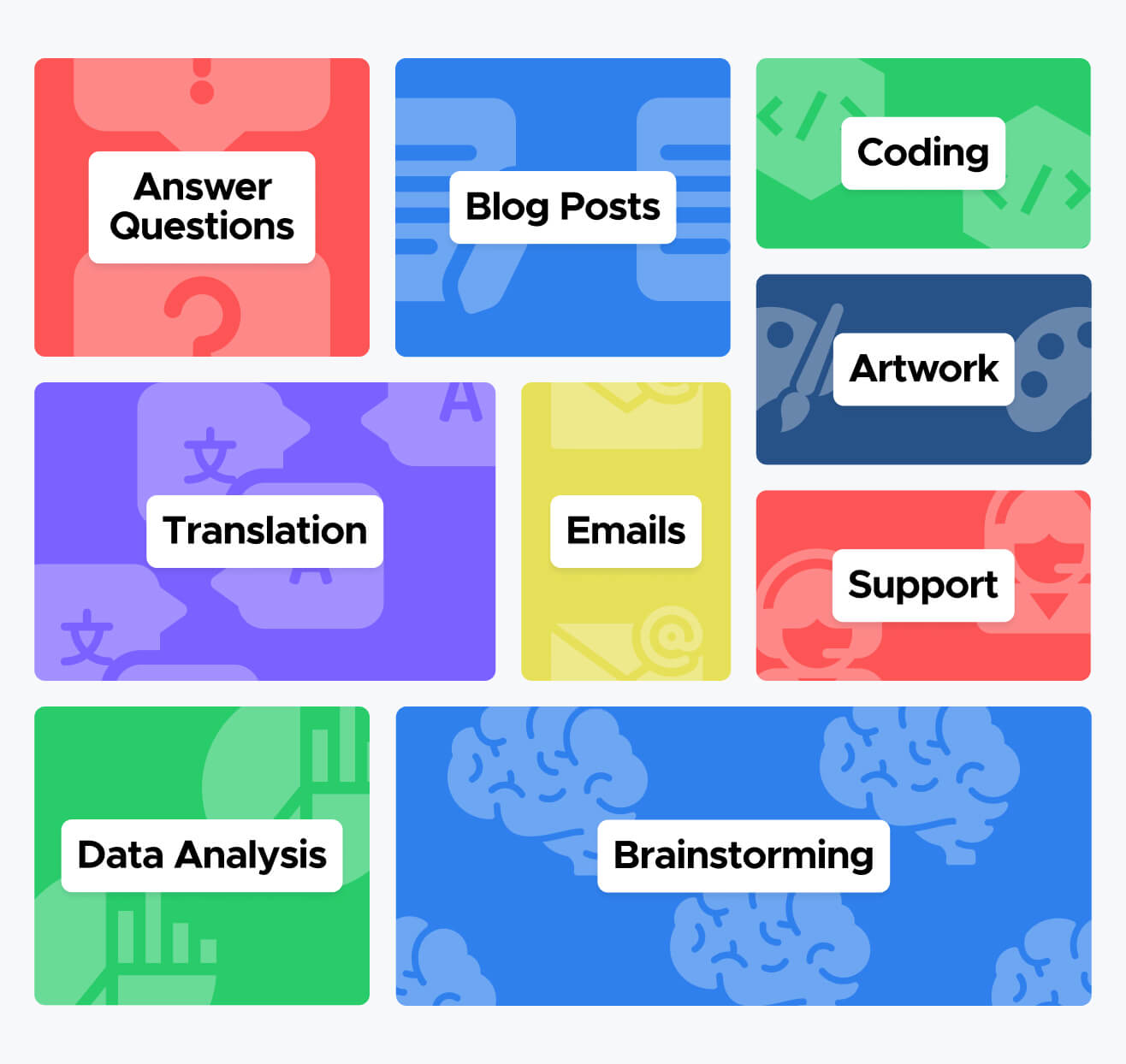
A survey conducted by the Verge among 2,ooo people shows that about 68% use Generative AI to answer a question, while 54% use it for brainstorming. Other honorable mentions are stories (29%), ChatGPT for data analysis (26%), emails (25%).
I love using it for marketing purposes. It’s important to note that I don’t copy and paste AI-generated content. I use AI to help me brainstorm ideas, in this case, I use AI to help me dive deeper into understanding my ideal buyer. Before AI, brainstorming your ideal buyer can be a really time-consuming task. After you get some insights, you have to go and test it and then come back and brainstorm more attributes until you finally build a profile.
What about the business, you may ask? How professionals use ChatGPT? Another research among 1,000 executives & level-C professionals by AIIA and ClearML indicates that 43% highlight strategy, analysis, and planning (corporate planning, risk management, finance) as a leading use case, followed by 40% for use case "feature for customers within the product". About 38% said they'd use an external chatbot to handle low-level tasks and 37% mentioned content generation. Surprised it's not the first on the list? Hold up, we're getting there!
of C-level executives use ChatGPT or related AI tools for strategy, analysis, and planning
How to talk to ChatGPT?
Once you've registered an account, you'll have an option to text in chat. To get the outputs mentioned above – generate text, code, strategy, etc. – you will need to use prompts.
Prompt is the initial input or instruction provided to the ChatGPT in the form of a natural language, like a few words or a sentence. Based on it, ChatGPT understands the task and performs it. The more specific the prompt, the better the result. Specifications can be the tone, style, and content format. Well-crafted prompts help in obtaining accurate and informative responses from the model.
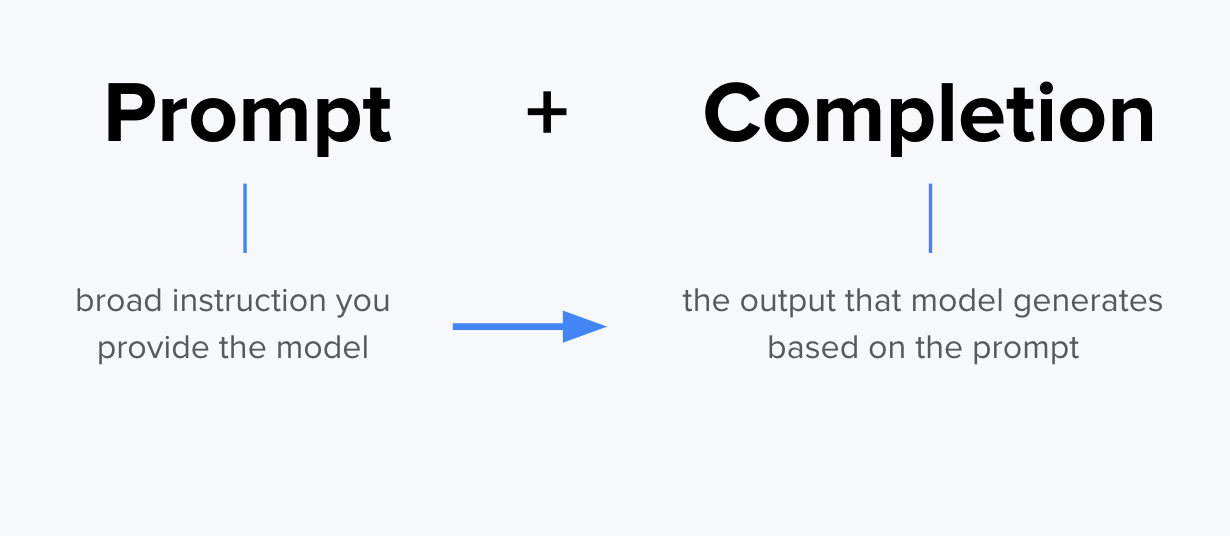
Most people are limiting themselves without realizing it. If you’re just typing in a single prompt and copying the first thing you get back, you’re doing it wrong. You need to turn the AI into a master of your field, using all the tools available, such as token length, temperature and formatting. Really set the scene for the AI. Make it take on a persona. You might be surprised at how much you’re leaving on the table with bad prompts.
What does GPT stand for? What is GPT API?
GPT, in the name of ChatGPT, stands for Generative Pre-trained Transformer (GPT-3,5/4), a large language model created by OpenAI research laboratory that uses machine learning to solve virtually any task that involves processing language. Basically, it's the brain behind ChatGPT and many other impressive AI apps. GPT API lets anyone use this power to build their own AI applications with its functions.
How does ChatGPT work? Where does ChatGPT get its data?
GPT-3.5 language model was trained on terabytes of internet data that give artificial intelligence (AI) applications the ability to generate text. ChatGPT is an AI chatbot, or a web app, that uses GPT's language model tailored specifically to interact with humans in a conversational way. Once provided with a prompt, it relies on GPT to produce text, like explaining code or writing poems.
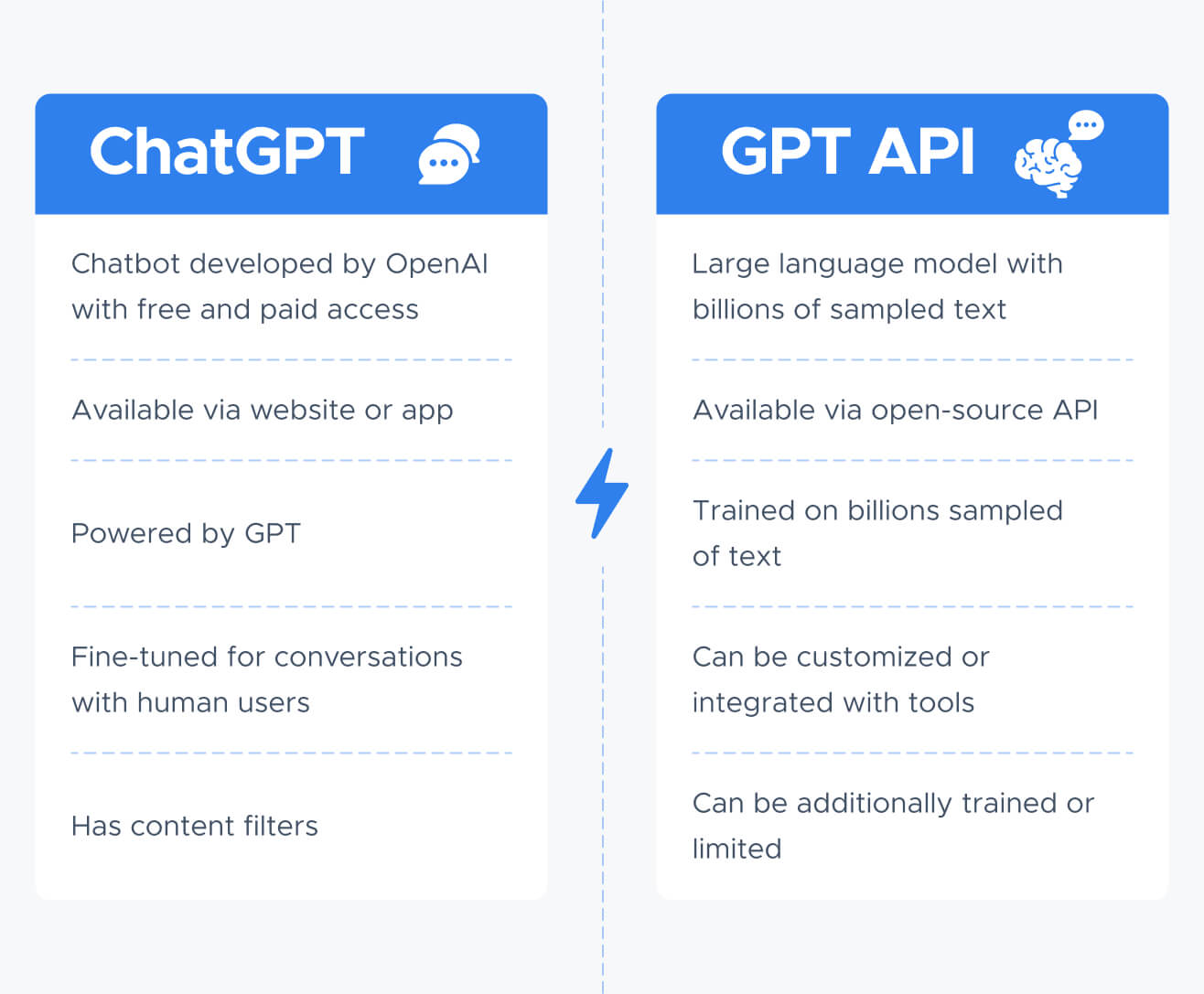
Do I need to be a programmer to use ChatGPT?
No, you don't need to have technical knowledge to use ChatGPT. Although, by understanding how the model works, you'll be able to write better prompts and use ChatGPT more effectively. Also, if you're exploring GPT API specifically, some coding skills are required.
One of the biggest misconceptions about AI is that you need to be super tech-savvy to use it. That’s not true. As long as you know how to type on your keyboard and browse the internet, you can communicate with AI tools.
That’s why it’s called Natural Language Processing - the chatbots are reading your written inputs, and based on the quality of your input, they will predict and generate a higher-quality response to match.
Does ChatGPT plagiarize?
No, ChatGPT doesn't intentionally plagiarize. However, it might generate text that resembles existing content from its training data. It's important to customize the prompt and later edit the generated content as needed.
Does ChatGPT collect data entered?
Originally, ChatGPT collected entered data for improving the performance of AI. Today, OpenAI retains customer API data for 30 days, and as of March 1st, 2023, they no longer use customer data sent via the API to improve their models. Although, while ChatGPT is a web app, the data is sent to Open AI – so additional attention to personal or sensitive information would be great.
Are there any limitations or risks to be aware of?
Yes, ChatGPT may generate incorrect information. It happens because the model is still imperfect, and as for the free ChatGPT version, its knowledge is limited to 2021. Human oversight, like fact-checking, is essential. To ensure the quality of responses from ChatGPT, you can review the answers or use paid versions: ChatGPT Plus (uses GPT-4) or the GPT API (you can implement filters and correct the data).
One of the common misconceptions is that Generative AI has an intent or bias: any bias in Generative AI outputs comes from the data it was trained on and not from the system itself. The AI itself doesn’t have intentions, emotions, or inherent biases; it does not “think” or “understand” in the same way humans do (not even close).
How to train ChatGPT on your own data? How to fine-tune GPT?
There are a few ways to achieve it.
Prompt engineering. Feed ChatGPT a detailed prompt. That's a free option that you can try out with a free account. Although there's a limit for characters, you can still add context for ChatGPT to get more precise outputs.
Fine-tune the model: use GPT API and connect your own data. That could be either structured (databases, like BigQuery) or unstructured (natural language inputs, like a knowledge base) data. This way, you'll get your own chatbot powered by GPT that relies on your sources to perform your instructions. Here, your capabilities for use cases become endless: from creating reports to having your own ChatGPT. You'll need to pay for using API, or if you want to try it out, explore free tools. For example, build a free GPT-4 prototype with a PDF or website content.
Use advanced model training. There are a few ways to tailor the model further with additional technical knowledge.
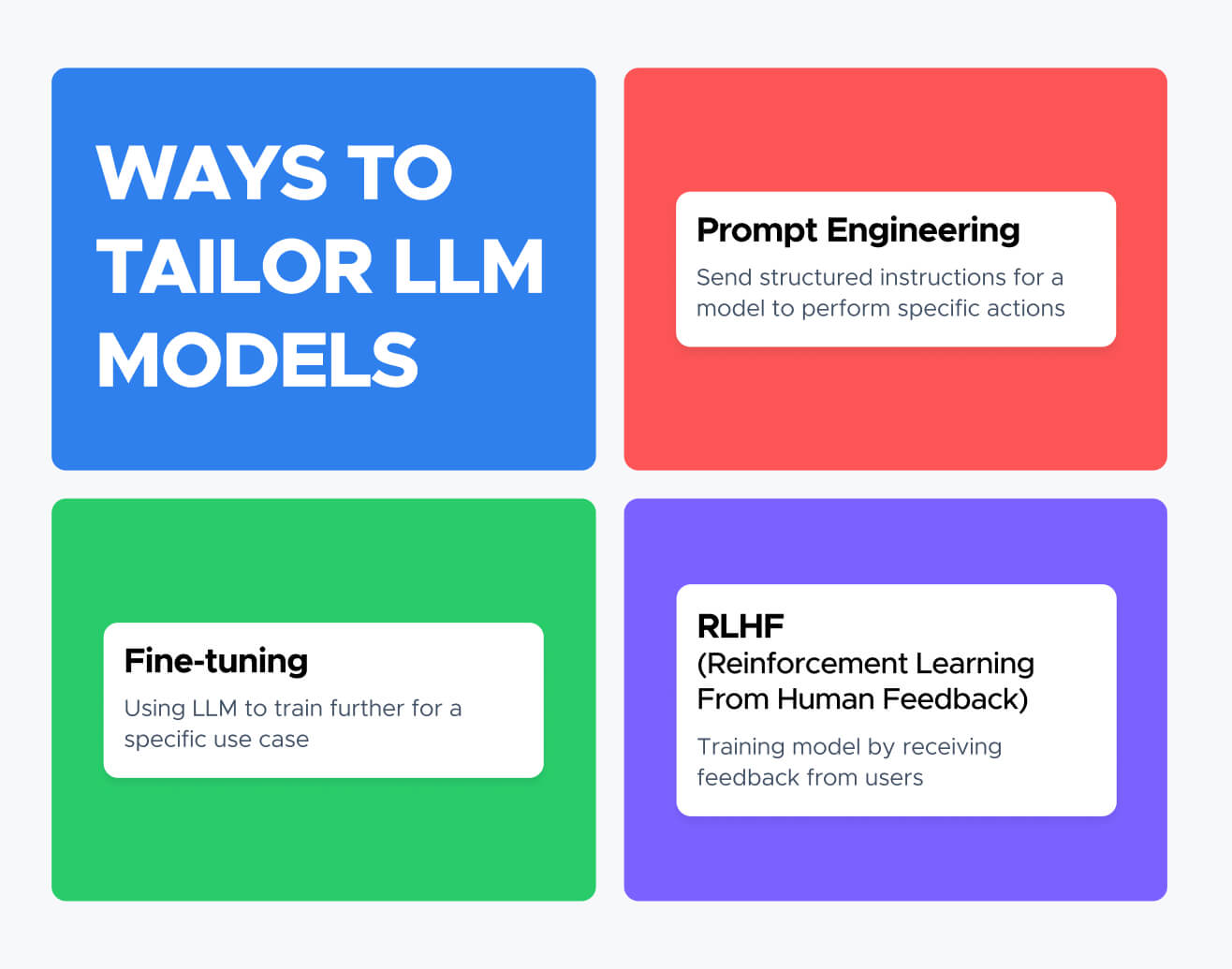
Conversational AI isn’t something you plug in and watch spring to life. Extracting value from conversational AI requires a comprehensive strategy, especially where legacy systems are involved. The good news is that the amount of work and introspection it takes to successfully implement and scale a conversational AI strategy pays dividends in the ways it unifies and improves all facets of an organization.
How to make your own ChatGPT?
OpenAI provides guidelines and tools for fine-tuning their models on your own data. However, it's a complex process that requires technical expertise. Check OpenAI's documentation for more details, or contact us to get a consultation.
Internal ChatGPT: 3 Business Use Cases
How to access GPT API and how much does it cost?
To access GPT API, you'll need a developer's access. Find more instructions, as well as pricing, here. Overall, the API pricing depends on the model version (e.g. GPT-3.5 or GPT-4 Turbo, which is more modern), purpose of use (fine-tuning, just using the API, etc.), and the actual use of the API: input & output tokens.
Can I use ChatGPT or GPT API outputs for commercial purposes?
Yes, you can use it for commercial purposes, like generating revenue, regardless of the country you are in. As per Open AI, you can use Content for any purpose, including commercial purposes such as sale or publication, if you comply with these Terms.
However, keep in mind that the use of AI is still subject to privacy policy, security, and copyright regulations depending on the laws of your country. In the United States and the European Union, it’s not legal to copyright any kind of AI-generated content.
Also, when processing customer data in the EU, it's vital to follow GDPR regulations. Also, to protect private data, there are additional layers that can be applied to ensure top-notch security, as described here.
Overall, while AI copyright and data protection are still under debate, anyone is currently open to using ChatGPT & GPT for generating revenue. Some examples of such are adding new product features like LLM layers on third-party software and selling them separately, developing independent monetized GPT-based tools, building ChatGPT plugins, and others.
ChatGPT for Commercial Use: Advice & Predictions from Experts
Now, as we're over the key concepts, let's move on to the most interesting question:
How to get the most out of ChatGPT?
As mentioned above: use ChatGPT like a pro by acing prompt engineering!
Tip #1: use ChatGPT like a pro by acing prompt engineering
Prompt engineering is the skill of being able to provide high-quality prompts to your AI chatbots, and as a result, you will be able to generate high-quality outputs. Another common phrase you’ll hear is “garbage in = garbage out” and this is why. If you say:
- “write a 200-word blog post about bees and honey”
it will be a super generic, robotic, and bland blog post.
But if you say something a bit more detailed, like:
- “Act as a professional copywriter, write a 200-word blog post about bees and honey in a conversational tone. The target audience is 40-year-old stay-at-home moms. Include a bullet point list of different types of honey. Then include a table with pros and cons of whether or not you should consume honey.”
then you’ll get an even better output.
Stating clear, descriptive prompts will help you drive the performance of ChatGPT further, even with the free version.
Tip #2: understand the areas for automation
ChatGPT has opened so many opportunities for automation that many struggle to find "the right one".
Personally, I like to perform an audit of my activities and then find where I’m spending the most time doing repetitive tasks. Then, I search for AI tools that can help automate that task specifically. Don’t tackle the entire organization as a whole, or you will be very overwhelmed with a lot of half-started and half-finished projects.
In fact, ChatGPT & GPT API are not the only representatives of emerging AI capabilities. Many other large language models power many apps and provide APIs for use. Even Open AI goes far beyond text-only: its another model, DALL-E, generates images from text prompts. These are representatives of generative AI examples.
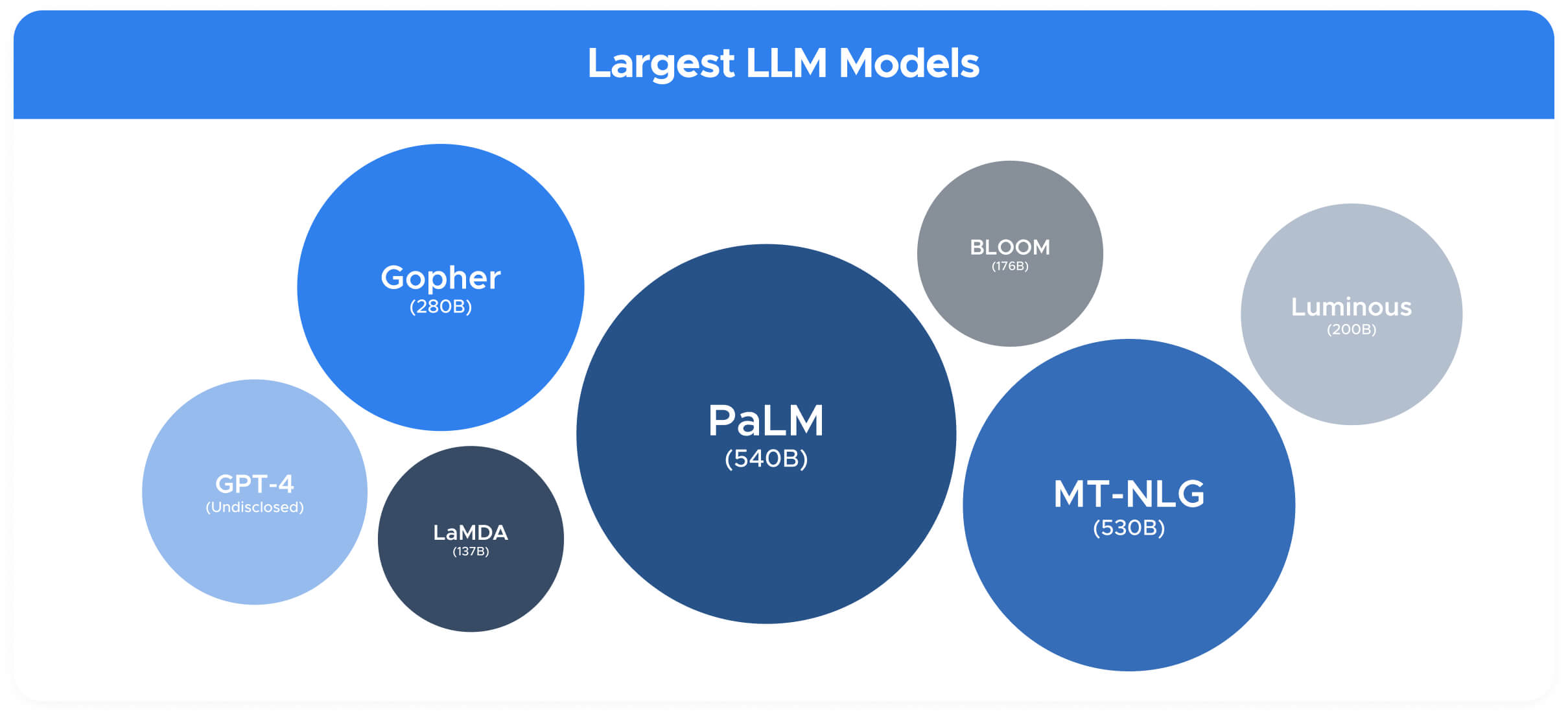
Generative AI Examples: How Companies Innovate Fast with AI
With that in mind, ChatGPT is just one of examples: threre's so much more to explore for commercial use. You can try the following:
Open-source models: model previews or tools provided by developers on a free or paid basis. Mostly, it’s possible to try them for free with certain limitations. Best for people new to generative AI or those exploring possible opportunities and business cases.
SaaS: freemium or paid ready-to-use solutions with a specific use case and additional features. A great bonus is the ability to have custom integration already built-in by the developer.
With so many options, you can find the best tool that fits your needs.
GPT/Generative AI has caused a 'tsunami' in the industry — and many small- to medium-size businesses, start-ups, and, more importantly, visionaries are now able to catch one's own wave. Until it's too late, select a niche, make an informed assumption, assess your results, rinse and repeat. Think big and act small until you've found what generates the most tangible results in your specific case. And you certainly will!
Tip #3: Calculate your returns
The main challenge with Generative AI, like most opportunities for automation, is to identify a task that truly has value from being automated, and for which, you don’t lose quality in using AI to replace the human.
A pragmatical method to identify said tasks is to calculate:
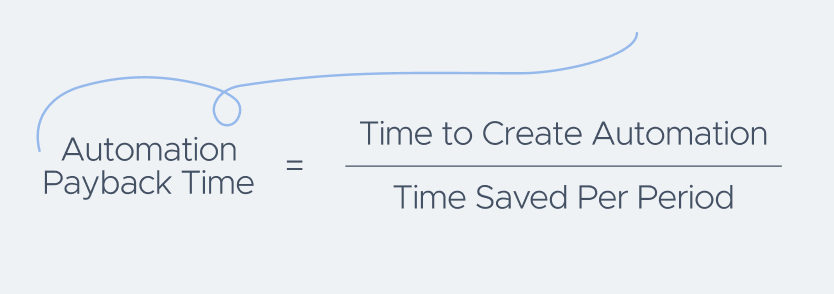
Opportunities like this are everywhere :
- Detecting Rejection emails in your CRM with GPT
- Generating email Icebreaker based on LinkedIn profile analysis with GPT
- Answer common customer questions and reduce Support workload using Chatbots (like BotsCrew)
My solution to making sure that you get the most out of generative AI would be to organize sessions with the entire team, identify tasks that are worth replacing, and provide your teams with the proper tools and training to implement them.
Ok, but how do you know which ares are best to start from?
Many companies have already applied generative AI to their regular workflows. A recent report from AIIA on Enterprise Generative AI Adoption shows C-level executives consider Marketing & Communications (16,8%), Product (15,4%), and R&D (14,4%) as most critical for automation.
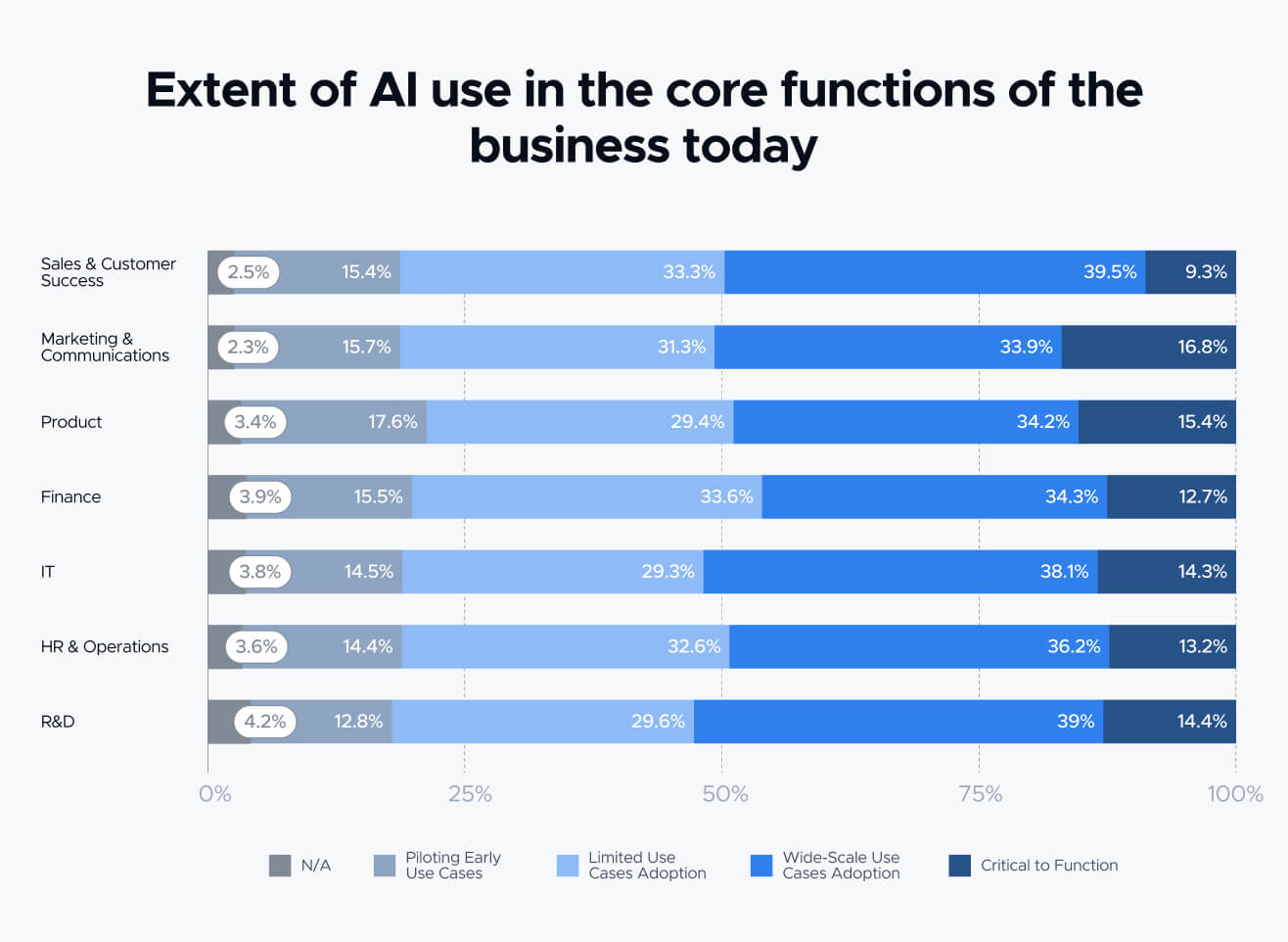
How will ChatGPT destabilize white-collar work?
One of the questions that bothers many people out there – will ChatGPT take the job of people? Is it ethical to "replace" people with AI on the scale that ChatGPT enables to?
A 2023 report from McKinsey & Co. Economic potential of generative AI indicates that the highest automation potential is meant to be for Educator, Business, and Creative professionals. For educational employees, it's as high as 30%!
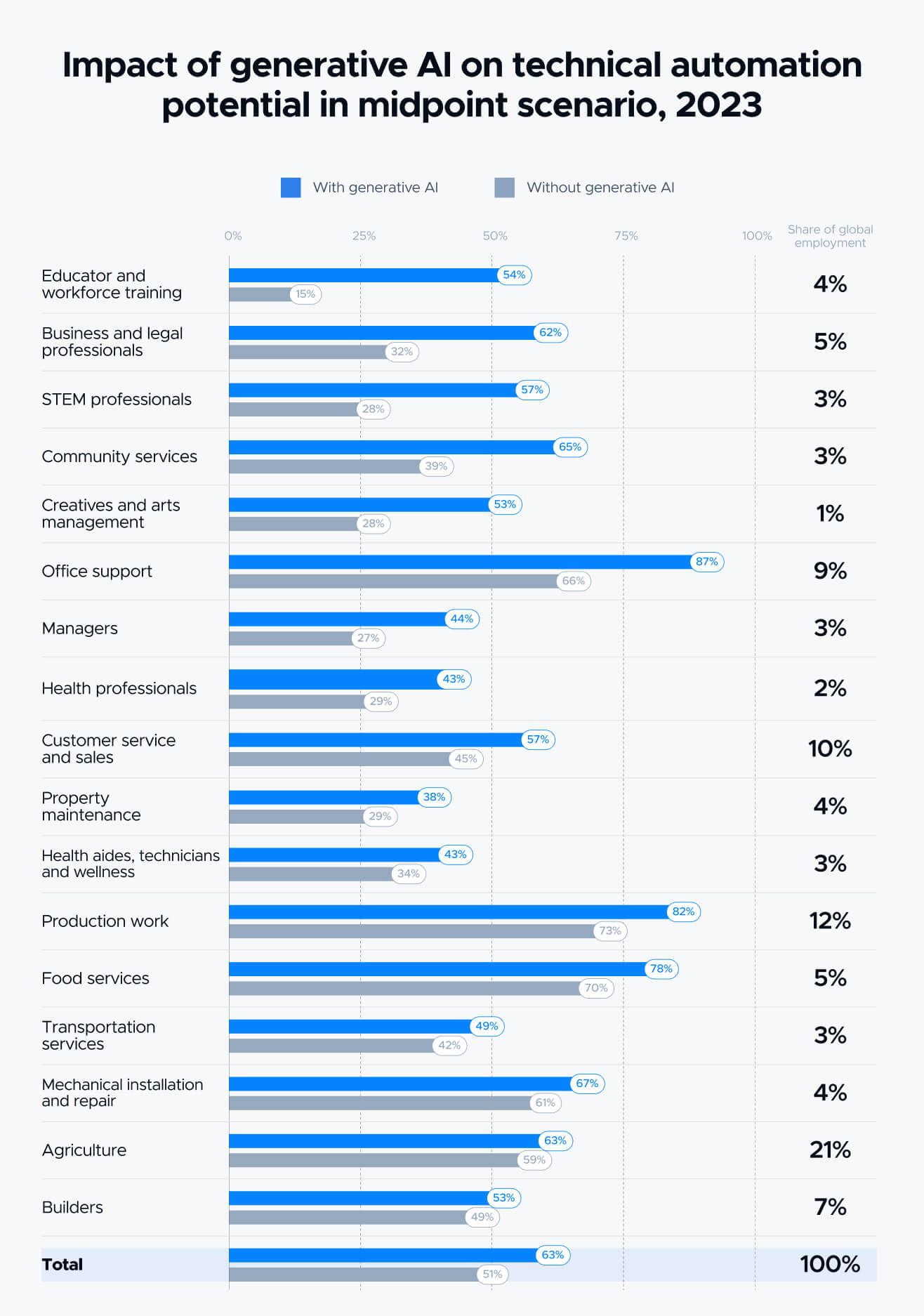
These are interesting times that we live in. It’s important now more than ever to learn AI skills so you don’t get left behind. The fear comes from people thinking that it will eliminate their job and make them obsolete. But it’s important to remember that AI is here to coexist with you in the workplace, and it’s not meant to fully replace you. Someone needs to write the prompt, edit the prompts, perform a quality check with the outputs, and then do something with the information that was created.
That’s why people say “AI won’t replace you, people who know how to use AI will replace you.”
And finally: Where are we headed with ChatGPT and Generative AI?
We heard how ChatGPT reached 1 million users in 5 days but does it mean any AI-powered solution will be that successful?
Generative AI is going to be everywhere. Every website, app, brand will be all over this. With that comes a much closer level of customer customisation. People will expect to be able to get more out for less in. Texting and messaging will change. Dating will change. Shopping will change. Work will change. Now that sounds scary, and it’s one of the reasons we need to ensure it’s deployed sensibly and properly.
As simple as it sounds, while the AI position is unstable, it's best to get ready for tomorrow that is likely to come.
The best thing you can do is get on board with it. Picture the 50-somethings who never got into the internet in the early 90s. Now they’re 80-90 and are clueless with smartphones. Don’t let that happen to you with AI - it’s not going anywhere!
Looking for your own generative AI solution?
Not sure about how generative AI works for business? We feel your pain. Your fear of missing out is actually very valid: more and more companies implement AI every day.
To help companies innovate fast, we figured out two ways to form a vision for generative AI, find value, and experience it in the shortest time:
The best choice if you're unsure how to use GPT-4 for business. Based on the Google Design Sprint methodology, the GPT Design Workshop lets you learn, map out ideas, and test a prototype to form a vision within two business days. Visit the page to learn more.
For those who already have a GPT project in mind but are unsure how to implement it into business, we formed an approach to follow the best development practices and security standards. Learn how we leverage Generative AI with predictable results for multiple industries.




